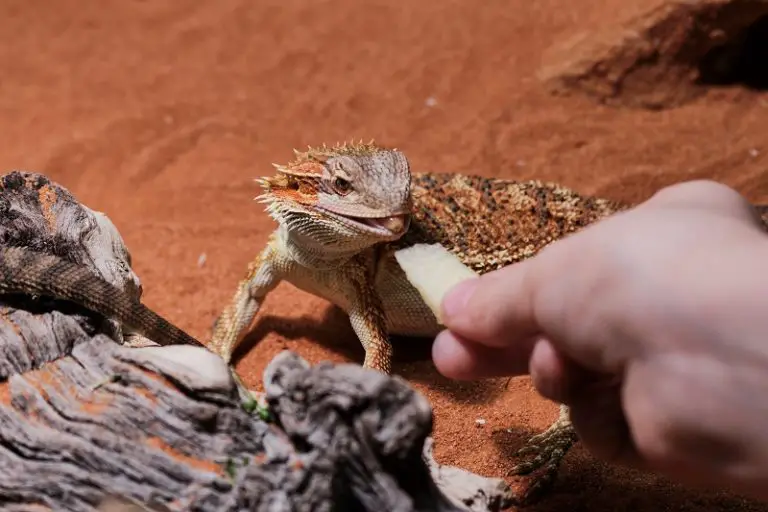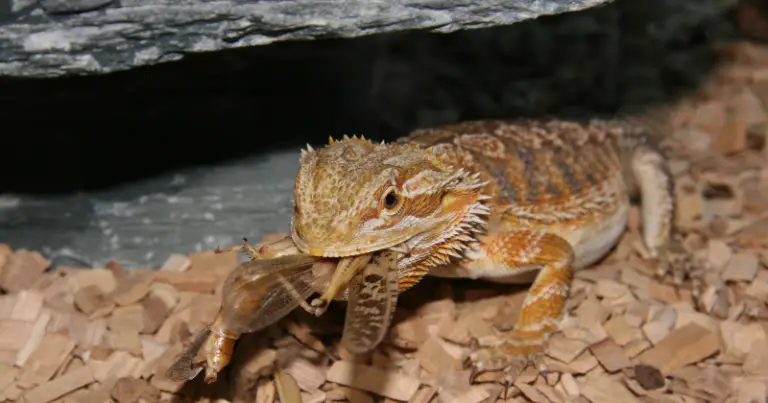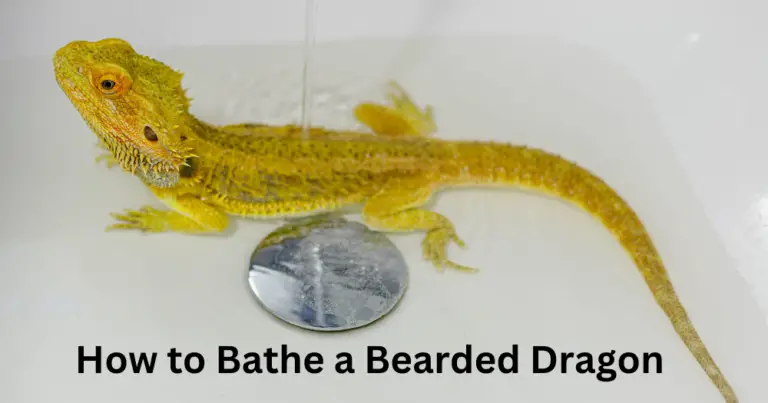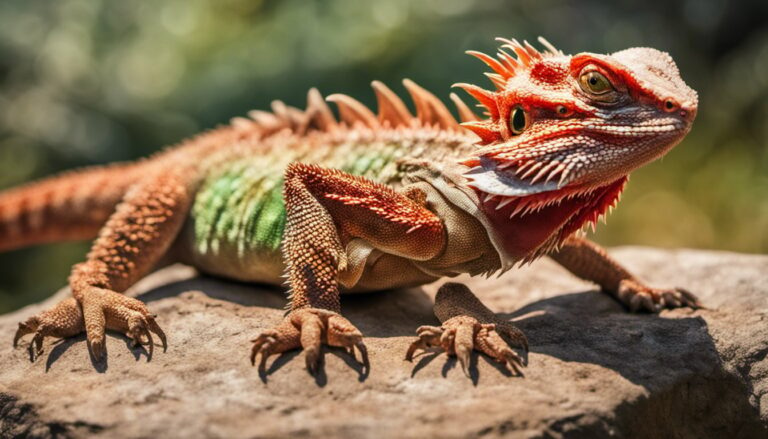Can Bearded Dragons Eat Cucumbers? What You Need To Know
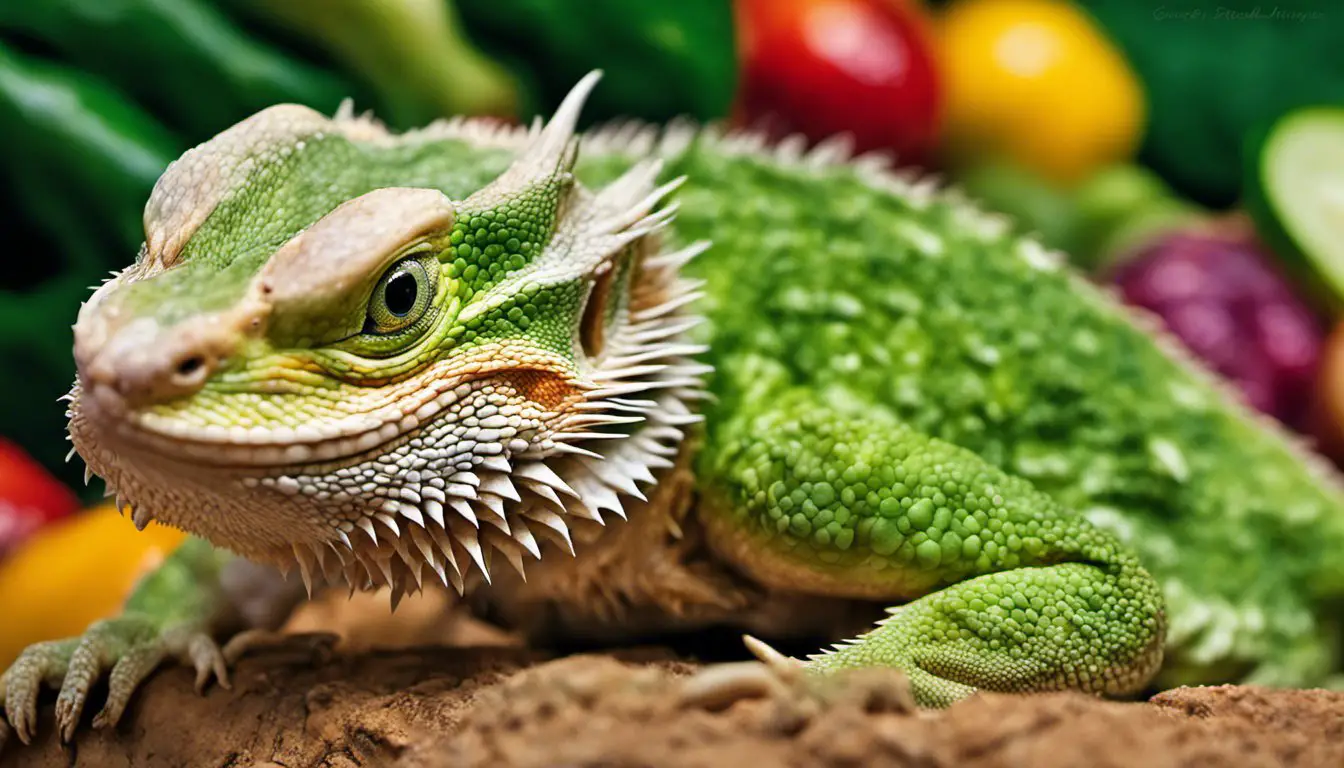
As a proud bearded dragon owner, you may wonder if your scaly friend can munch on cucumbers. After all, cucumbers are a refreshing and hydrating snack for humans – but can bearded dragons eat cucumbers? Let’s dive into the world of bearded dragons and cucumbers, exploring the benefits, risks, and dietary considerations you need to know.
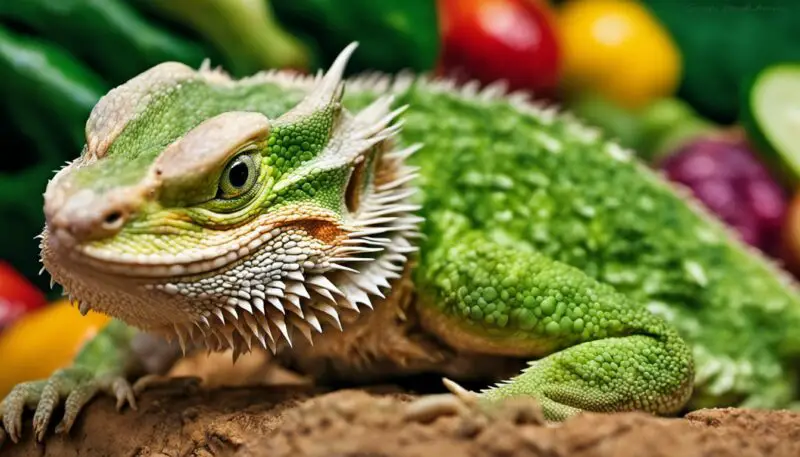
Contents
Table of Contents
Short Summary
Cucumbers can be part of a balanced diet for bearded dragons but should not be the primary component due to their low nutrient content.
Bearded dragons should consume cucumbers in moderation and be prepared properly with their skin removed and seeds removed.
Various feeder insects, fruits, and vegetables are necessary for good nutrition and monitoring health signs such as weight loss or abnormal behavior.
Cucumber Consumption for Bearded Dragons
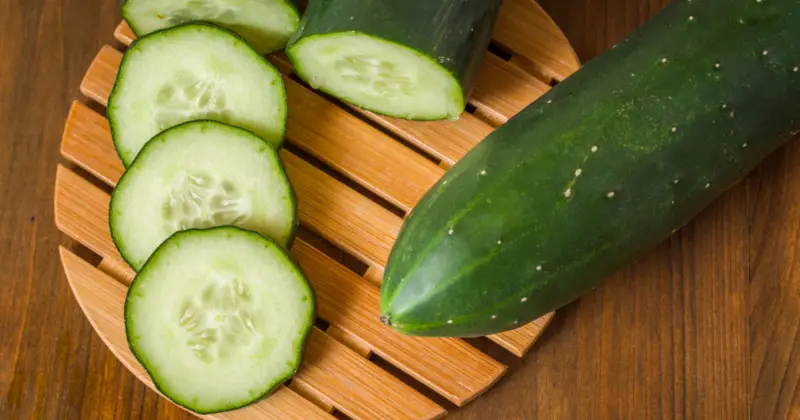
Bearded dragons can enjoy cucumbers in moderation, and you might wonder, can a bearded dragon eat cucumbers as a part of their diet? Too much of anything is not good for them. Due to their low nutrient content, a bearded dragon’s cucumbers should not be a primary component of a bearded dragon’s diet. To ensure the safety and health of your bearded dragon, it is essential to provide a varied diet that includes insects, fruits, and vegetables.
When it comes to cucumber types, the most common variety for bearded dragons is the English cucumber. These cucumbers can be consumed with the cucumber skin on as long as they are washed and the seeds are removed. The shorter, 3-4 inch cucumbers offer a softer, palatable option for your bearded dragon.
Preparing Cucumbers for Bearded Dragons
Before serving cucumbers to your bearded dragon, it’s crucial to clean off any soil or grit from the surface. While bearded dragons can consume cucumber skins, leaving them on may lead to impaction and other health complications. Therefore, it’s best to peel the cucumbers to avoid potential issues.
Additionally, cucumber seeds should be removed before feeding as they pose a choking hazard and cannot be processed by bearded dragons. To serve cucumbers safely, cut them into small, thin slices.
The Role of Cucumbers in a Bearded Dragon’s Diet
As mentioned earlier, cucumbers should not be a staple food in a bearded dragon’s diet due to their low nutrient content. Instead, they can be offered occasionally as a treat alongside various feeder insects, fruits, and vegetables to maintain optimal health. Excessive vegetable consumption may lead to digestive issues and diarrhea in bearded dragons.
Maintaining an adequate calcium-to-phosphorus ratio in your bearded dragon’s diet is vital to prevent Metabolic Bone Disease. The suggested ratio is between 1.5:1 and 2:1, with a higher proportion of calcium.
Potential Health Benefits of Cucumbers for Bearded Dragons
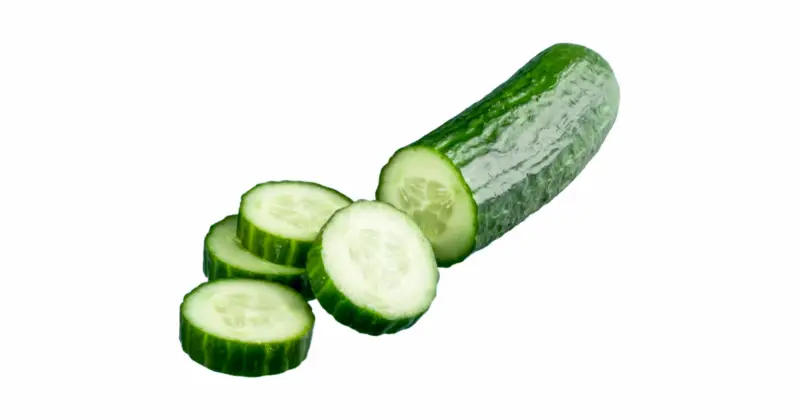
While cucumbers may not offer significant nutritional value, they do provide some health benefits when included in a well-balanced diet. One of the primary advantages of cucumbers for bearded dragons is their high water content, which serves as a beneficial hydration source.
In addition to hydration, cucumbers also supply vitamins C and K. Vitamin C is essential for the well-being of bearded dragons and plays a vital role in maintaining their overall health.
Despite these benefits, it’s important to remember that cucumbers should not serve as a staple food in a bearded dragon’s diet due to their low nutrient content. Instead, they can be offered occasionally as a treat to complement a diverse diet of insects, fruits, and vegetables.
Risks Associated with Feeding Cucumbers to Bearded Dragons
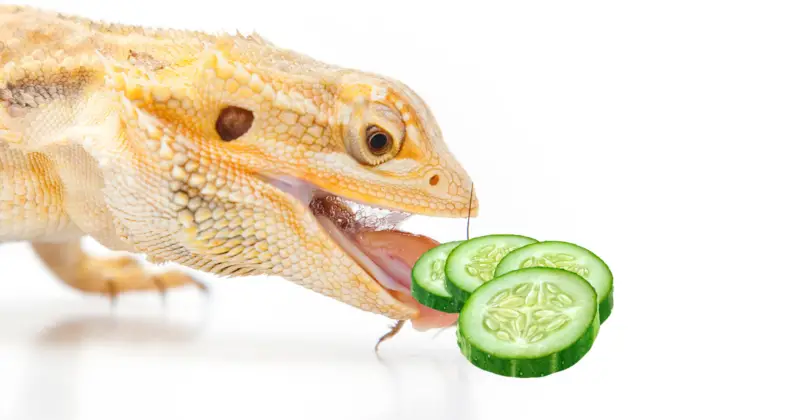
Excess consumption of cucumbers can result in overhydration, inadequate nutrient intake, and calcium deficiency. Monitoring the frequency of cucumber consumption is crucial, as overfeeding can lead to serious health risks for your bearded dragon. To ensure adequate calcium intake when feeding cucumbers, supplementing your bearded dragon’s diet with calcium sprinkles is recommended. This will help maintain a proper calcium balance and prevent deficiencies.
Another risk associated with cucumbers is oxalic acid, which can bind with calcium and lead to kidney stones or calcium deficiency due to its interference with calcium absorption in the bloodstream. Be mindful of this when including cucumbers in your bearded dragon’s diet.
Age Considerations: Can Baby Bearded Dragons Eat Cucumbers
Baby bearded dragons have distinct nutritional requirements compared to adult bearded dragons. It is recommended that baby bearded dragons should have an 80% insect and 20% vegetable diet. While cucumbers can be included in their diet, it is essential to consider their age and overall nutritional needs. Due to its high oxalate concentration, some vegetables and fruits, such as celery, should be avoided for baby bearded dragons.
As with adult bearded dragons, moderation is key when introducing cucumbers to baby bearded dragons’ diets. Monitoring the health of baby bearded dragons is crucial as they are more vulnerable to dehydration and malnutrition than adults. Potential signs of health problems in baby bearded dragons include lethargy, weight loss, and a lack of appetite.
Can Bearded Dragons Eat Cucumbers? Watch this
Alternative Vegetables and Fruits for Bearded Dragons
Aside from cucumbers, there are numerous other fruits and vegetables that can be included in a bearded dragon’s diet. Some suitable options include:
Apples
Bananas
Berries
Turnips
Yellow squash
Alfalfa sprouts
Broccoli
However, it is important to avoid citrus fruits, such as oranges, lemons, limes, and grapefruit, as they can be too acidic for bearded dragons.
To ensure that your bearded dragon receives the necessary nutrients, provide a variety of vegetables and fruits in their diet, with various colors and textures. This will allow your bearded dragon to benefit from diverse vitamins and minerals.
Remember also to include insects in their diet, as they are a vital source of protein and other nutrients for bearded dragons. A well-balanced diet for bearded dragons should consist of:
Insects
Greens
Vegetables
Fruits
This diet will help ensure the bearded dragon’s health and overall well-being of your adult bearded dragon, as it considers what bearded dragons can eat.
Tips for Creating a Balanced Diet for Your Bearded Dragon

A balanced diet for bearded dragons, especially a juvenile’s diet, should include a combination of:
Insects
Greens
Vegetables
Fruits
To understand their nutritional needs and preferences, offer a variety of vegetables and fruits while considering their individual preferences. This will help you create a healthy and balanced diet that meets your beardie’s unique needs.
Insects should also be a significant part of their diet, providing essential nutrients like protein. When feeding fruits and vegetables, choose those that are rich in vitamins, minerals, and other nutrients to maintain optimal health.
Monitor your bearded dragon’s weight, behavior, and overall health to ensure they receive the necessary nutrition. Adjust their diet accordingly if you notice any changes or signs of potential health issues.
Warning Signs of Health Issues in Bearded Dragons

Diarrhea, lethargy, and weight loss are potential indicators of health issues related to a bearded dragon’s diet. Keep an eye out for these signs and adjust their diet as needed to prevent further complications.
In addition to diet-related issues, bearded dragons may exhibit other signs of potential health problems, such as:
Respiratory problems
Secretion
Eye issues
Abnormal feces
Anomalous behavior
Cloudy eyes
If you notice any of these signs, it is crucial to consult with a veterinarian to determine the cause and appropriate treatment.
Baby bearded dragons are particularly susceptible to dehydration and malnutrition. Monitor their health closely and adjust their diet as needed to ensure they receive proper nutrition.
Summary

In conclusion, bearded dragons can eat cucumbers, but moderation is essential. Cucumbers should not be a staple food in their diet due to their low nutrient content. Instead, they can be offered occasionally alongside a diverse diet of insects, fruits, and vegetables.
Keep an eye on your bearded dragon’s health, monitor their weight, and adjust their diet as needed to ensure they receive the proper nutrition. Your bearded dragon will thrive and live a healthy, happy life with a balanced and varied diet.
Frequently Asked Questions
Can bearded dragons eat cucumbers with skin?
Bearded dragons can eat cucumbers, but only every other week and the skin must be peeled off to prevent choking or gut impaction. The seeds should also be scooped out for the same reason. Cucumbers can provide a healthy snack when fed as part of a well-balanced diet.
What veggies can Beardies not eat?
Bearded Dragons should not eat spinach, broccoli, or romaine due to the potential risks they may have, and can instead enjoy fruits like apples, strawberries, watermelon, and peaches.
Can bearded dragons eat tomatoes or cucumbers?
Yes, bearded dragons can eat cucumbers and tomatoes in moderation. To ensure they’re safe to consume, you must wash them, remove the skin, and chop them up before feeding them to your pet. Only a small amount of tomato should be served once a month.
What does a bearded dragon need to eat daily?
A juvenile bearded dragon needs to be fed three times a day with a diet consisting mainly of insects, with some fruits and vegetables. Adults should have 80% plants and 20% insects. It is important to consult with a veterinarian on the specific needs of the individual dragon.
How should I prepare cucumbers for my bearded dragon?
Clean the cucumbers, remove the seeds, and cut them into thin slices for your bearded dragon to enjoy. This way, your pet can easily digest the cucumber safely.

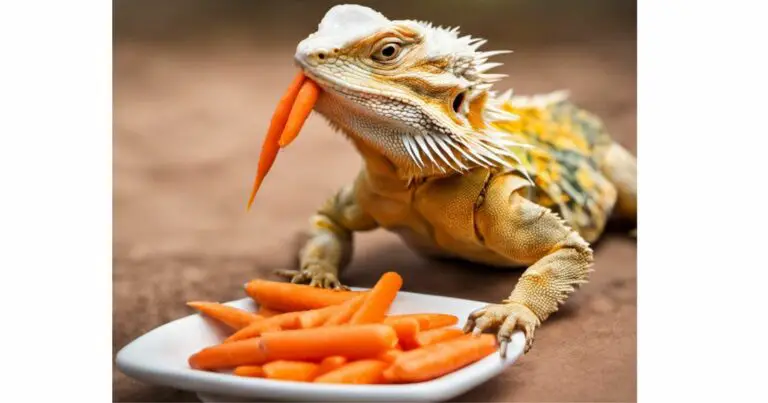
![Best Bedding For Bearded Dragons [Full Guide + Top Options]](https://allourcreatures.com/wp-content/uploads/2021/12/bigstock-Bearded-Agama-latin-Pogona-V-396699188-768x498.jpg)
